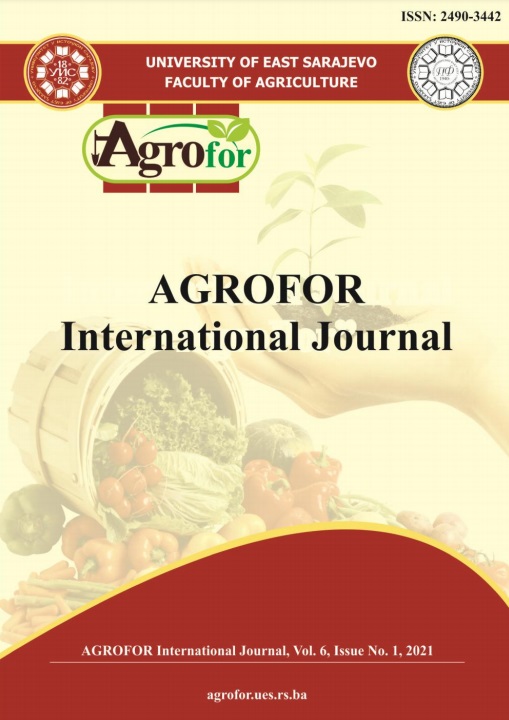ACCEPTANCE AND ADOPTION OF TECHNOLOGIES IN AGRICULTURE
DOI:
https://doi.org/10.7251/AGRENG2101135EAbstract
There is a need for transition towards sustainability in agriculture and food
systems. New technologies and innovations can play a central role in improving
agriculture productivity and sustainability. However, there is still a gap in
understanding the factors that determine the acceptance and adoption of
technologies in agriculture. Therefore, this review provides an overview on the
main models and theories on the acceptance, adoption, use and/or diffusion of
technologies. The most prominent theories and models include the Theory of
Reasoned Action, the Technology Acceptance Model, the Motivational Model, the
Theory of Planned Behaviour, the Innovation Diffusion Theory, the Social
Cognitive Theory, the Social Construction of Technology, and the Unified Theory
of Acceptance and Use of Technology. Furthermore, different combinations of
these models have been used in technology adoption studies. These conceptual
approaches and models span across disciplines (e.g. sociology, psychology,
innovation, management) and differ in terms of theoretical assumptions, goals,
variables and assessment methods. Factors determining the acceptance and use of
technologies in agriculture are related to the technology itself and the ease of its
use as well as social (age, gender), emotional, attitudinal and cognitive factors.
Technology adoption is also affected by the environment and context in which it
takes place. Technology acceptance models make use of predictors that are
cognitive or relating to attitude, beliefs or perceptions. Some of the models focus
on internal factors, such as antecedents of behaviour (e.g. values, attitudes,
intentions), while others also address external issues (e.g. social norms, economic
incentives, institutional environment). The framing of technology adoption within
the wider Agricultural Knowledge and Innovation System (AKIS) offers
interesting opportunities for fostering transition towards sustainability in
agriculture. Indeed, technologies are just one component of AKIS and innovation in agriculture also encompasses social, organizational, marketing and institutional
fields.

